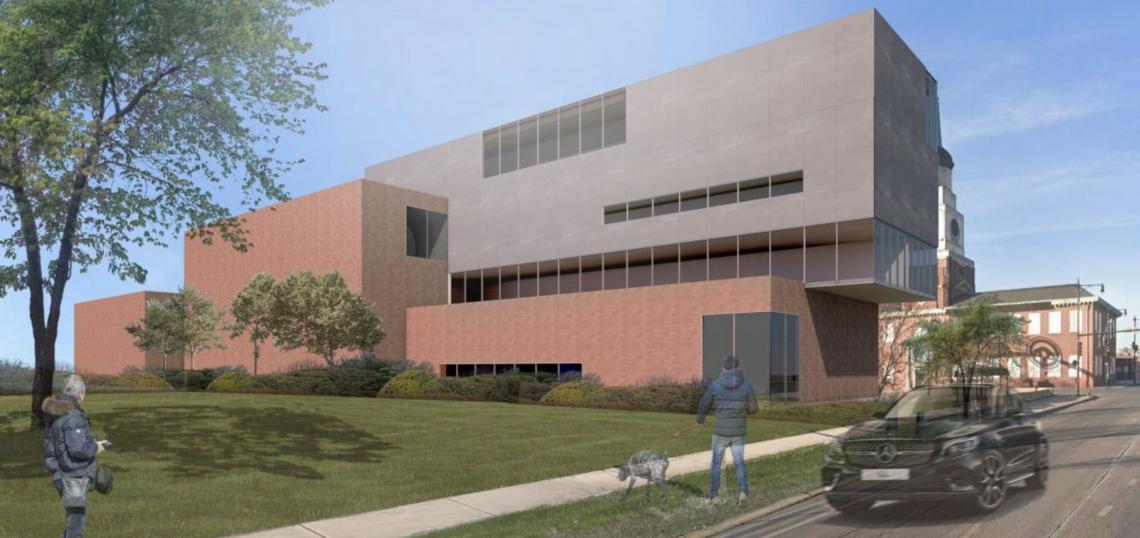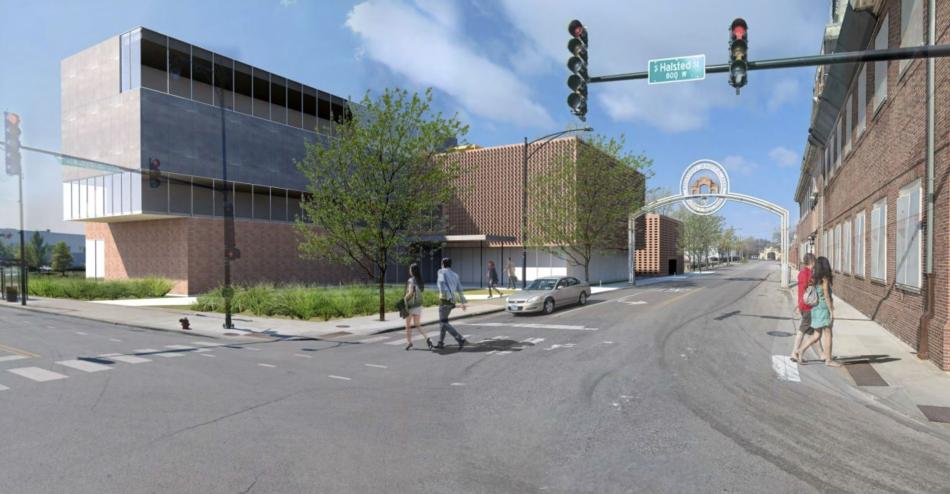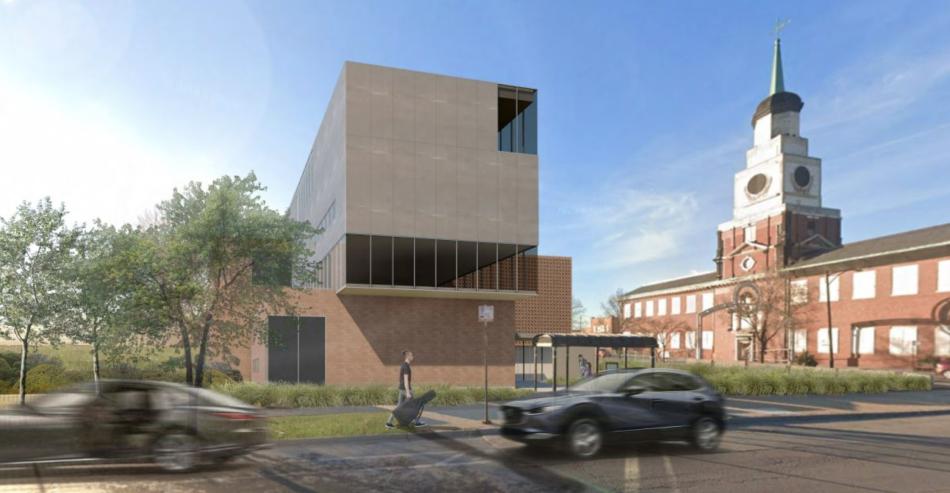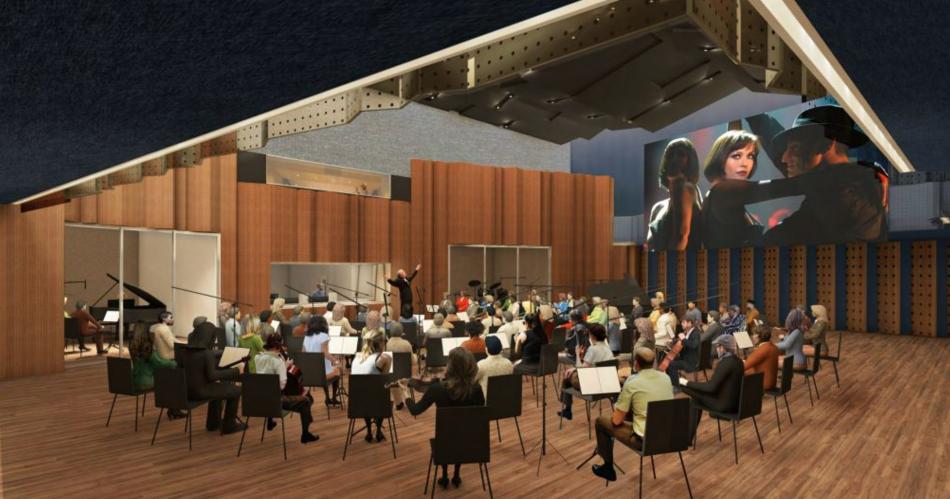The Chicago Department of Planning and Development (DPD) has announced that an $80 million recording complex proposed by Third Coast Music is the winning respondent to a City of Chicago Request for Proposals (RFP) for the landmark Stockyard Bank and adjacent land in New City. Third Coast Music is a charitable and educational organization that helps prepare music students and professionals for careers within the industry.
The “Scoring Stage” complex would create a global destination at 821 W. Exchange Ave for the recording of musical ensembles of up to 100 people, with additional space for post-production, special events, education, and a Chicago music museum. Most recordings would be for the film, television and music industries, which currently lack a local, state-of-the-art recording complex for orchestras, choirs and other large groups, according to the Third Coast.
Event space, classrooms and the museum would be housed within the former bank while recording and post-production uses would be housed within a new, 31,700-square-foot building that features an 8,000-square-foot scoring studio. Parking would be provided in a new multi-story garage that’s connected to the studio building.
Third Coast’s proposed purchase price for the properties is $1.9 million. Construction financing would include grants and donations from institutions and benefactors, conventional loans, and public assistance that is yet to be determined. The sale and potential City assistance requires City Council authorization.
“Unlike its counterparts on Los Angeles movie lots, the Scoring Stage would be a creative hub that serves industry professionals and supports youth in all areas of the music business, through workshops, internships, and other opportunities that leverage the facility,” Third Coast said in its purchase application.
The Colonial Revival-style bank was designed by Abraham Epstein and completed in 1925 to serve industries and employees of the nearby Union Stock Yards and Central Manufacturing District. With its Palladian windows and central clock tower, the design is closely modeled on Independence Hall in Philadelphia. It was designated an official City landmark in 2008.
If approved, the project could help bolster Chicago's top-five national ranking as a recording center, with 6,300 local jobs in the field, according to World Business Chicago.










